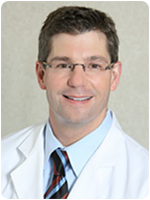About Dr. Mark Chastain, MD
Dr. Mark A. Chastain is a native of Georgia, having been born and raised in Columbus. He attended Emory University where he received a Bachelor of Arts degree and graduated Phi Beta Kappa. He then moved to New Orleans where he attended Tulane University School of Medicine.
After graduating, he remained at Tulane to complete an internship and Dermatology residency and was selected as chief resident during the final year. After residency, Dr. Chastain pursued his interest in skin cancer by completing an approved fellowship training program in Mohs micrographic surgery and advanced reconstructive surgery. His fellowship program was directed by Gary D. Monheit, M.D. in affiliation with the University of Alabama – Birmingham and the Callahan Eye Foundation Hospital in Birmingham, AL. Upon the completion of his fellowship, Dr. Chastain returned to Tulane to serve on the academic faculty as an assistant professor of Dermatology and Otolaryngology-Head & Neck Surgery and director of the Mohs surgery unit. He distinguished himself by authoring numerous publications and lecturing at various regional and national meetings.
Dr. Chastain then returned to his home state of Georgia to enter private practice. He still holds a faculty position at Tulane University School of Medicine. He is also a clinical assistant professor at Emory University School of Medicine and is active in their teaching program. His practice is limited mainly to the management of patients with skin cancer and patients who are at risk for skin cancer. Dr. Chastain specializes in Mohs micrographic surgery as well as advanced reconstructive techniques, melanoma excision, and routine skin surgery.
Dr. Chastain is on the medical staff of both Wellstar Kennestone Hospital in Marietta and Piedmont Hospital in Atlanta. He is a diplomate of the American Board of Dermatology (board certified) and a fellow of the American College of Mohs Surgery (ACMS). He is also an active member of the following organizations: American Academy of Dermatology, Atlanta Association for Dermatology and Dermatologic Surgery, and the Medical Association of Georgia.
After graduating, he remained at Tulane to complete an internship and Dermatology residency and was selected as chief resident during the final year. After residency, Dr. Chastain pursued his interest in skin cancer by completing an approved fellowship training program in Mohs micrographic surgery and advanced reconstructive surgery. His fellowship program was directed by Gary D. Monheit, M.D. in affiliation with the University of Alabama – Birmingham and the Callahan Eye Foundation Hospital in Birmingham, AL. Upon the completion of his fellowship, Dr. Chastain returned to Tulane to serve on the academic faculty as an assistant professor of Dermatology and Otolaryngology-Head & Neck Surgery and director of the Mohs surgery unit. He distinguished himself by authoring numerous publications and lecturing at various regional and national meetings.
Dr. Chastain then returned to his home state of Georgia to enter private practice. He still holds a faculty position at Tulane University School of Medicine. He is also a clinical assistant professor at Emory University School of Medicine and is active in their teaching program. His practice is limited mainly to the management of patients with skin cancer and patients who are at risk for skin cancer. Dr. Chastain specializes in Mohs micrographic surgery as well as advanced reconstructive techniques, melanoma excision, and routine skin surgery.
Dr. Chastain is on the medical staff of both Wellstar Kennestone Hospital in Marietta and Piedmont Hospital in Atlanta. He is a diplomate of the American Board of Dermatology (board certified) and a fellow of the American College of Mohs Surgery (ACMS). He is also an active member of the following organizations: American Academy of Dermatology, Atlanta Association for Dermatology and Dermatologic Surgery, and the Medical Association of Georgia.
Patient Education Resources
Does Coolsculpting® really work?
CoolSculpting® is a non-surgical, non-invasive procedure that uses a device to cool targeted areas of fat, causing the fat cells to freeze and die. Over time, the body naturally eliminates these d...
CoolSculpting® is a non-surgical, non-invasive procedure that uses a device to cool targeted areas of fat, causing the fat cells to freeze and die. Over time, the body naturally eliminates these d...
How can Botox® improve my appearance?
Botox® (botulinum toxin type A) is a medication that is primarily used to temporarily paralyze specific muscles in the face and body.It is most often used to improve the appearance of wrinkles and...
Botox® (botulinum toxin type A) is a medication that is primarily used to temporarily paralyze specific muscles in the face and body.It is most often used to improve the appearance of wrinkles and...
How do biologics work to treat my psoriasis?
Biologics are a class of medications that are used to treat moderate to severe psoriasis. They are typically used when other treatments, such as topical creams and light therapy, have not been effecti...
Biologics are a class of medications that are used to treat moderate to severe psoriasis. They are typically used when other treatments, such as topical creams and light therapy, have not been effecti...
What are some basic acne skin care tips?
Here are some basic acne skin care tips that may help to reduce the appearance and severity of acne:Cleanse your skin gently: Use a mild, non-abrasive cleanser to wash your face twice a day. Avoid usi...
Here are some basic acne skin care tips that may help to reduce the appearance and severity of acne:Cleanse your skin gently: Use a mild, non-abrasive cleanser to wash your face twice a day. Avoid usi...
What is the best brand of botulinum toxin to improve my appearance?
Botulinum toxin is a type of neurotoxin that is used for a variety of cosmetic and medical purposes. There are several different types of botulinum toxin available on the market, each with their own u...
Botulinum toxin is a type of neurotoxin that is used for a variety of cosmetic and medical purposes. There are several different types of botulinum toxin available on the market, each with their own u...
